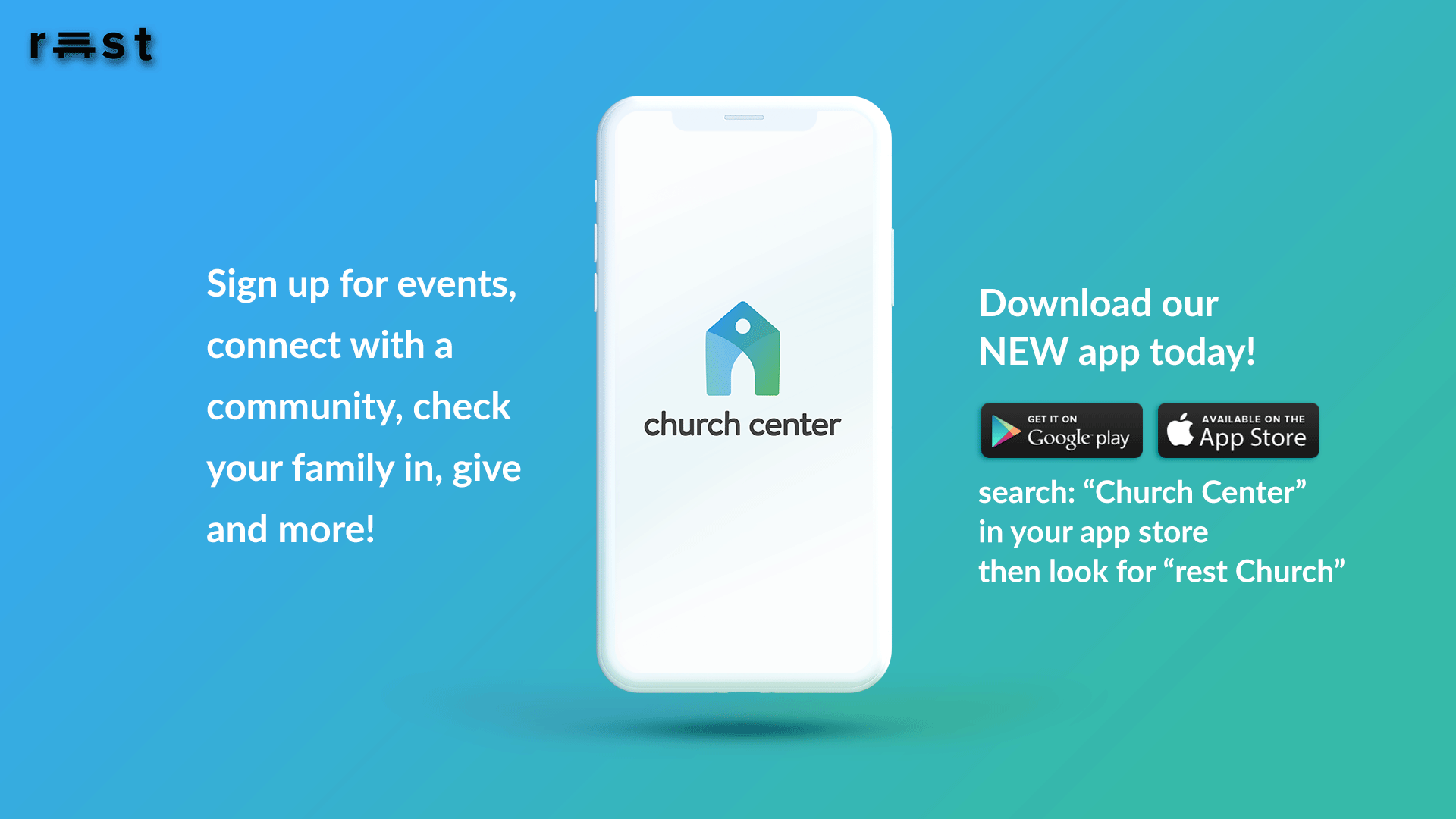Home » Jonah’s Leftovers // Jonah 4:10-11
Jonah’s Leftovers // Jonah 4:10-11
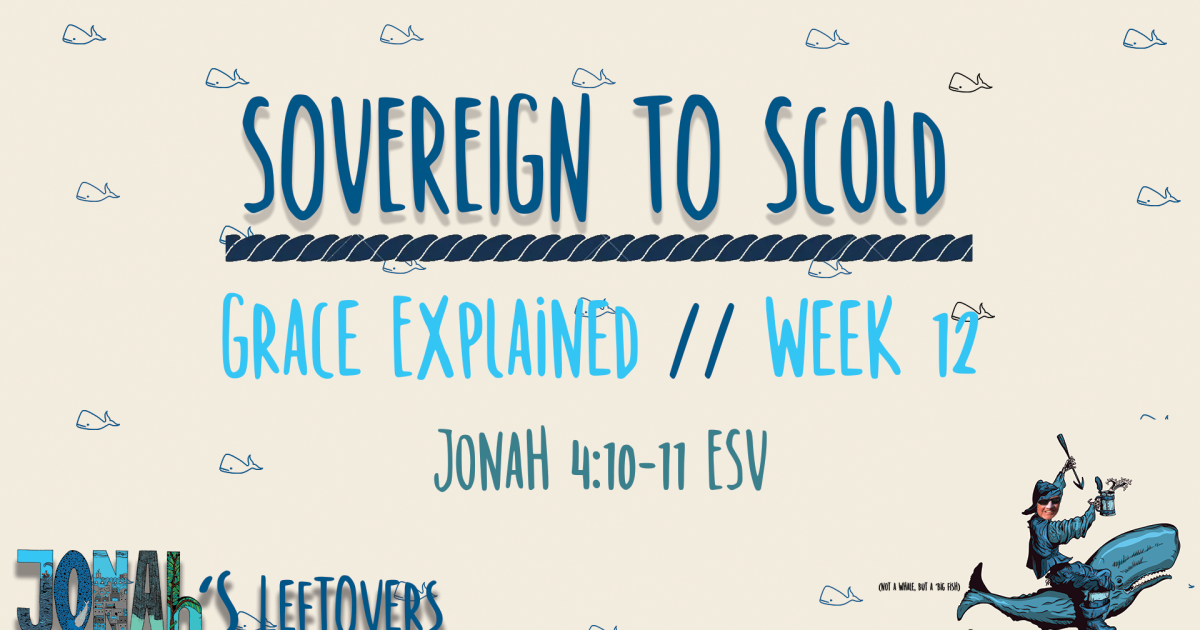
Sovereign To SCOLD // Grace Explained
"10And the Lord said, “You pity the plant, for which you did not labor, nor did you make it grow, which came into being in a night and perished in a night. 11And should not I pity Nineveh, that great city, in which there are more than 120,000 persons who do not know their right hand from their left, and also much cattle?” ~Jonah 4:10-11 ESV
THE BIG re-cap
Well it’s been a fun ride through the book of Jonah, and here is where we’ve been:
Sovereign to SEND [[Jonah 1:1-17]]
wk1 ~ The Prophet ~ 1:1-3
MP: We’ve all got a little of that run (Jonah jr) in us + If you want to run from God you’ll always find a ship to get you there
wk2 ~ The Storm ~ 1:4-16
MP: Not every storm that shows up comes from God, but God will use every storm to redirect us to Himself.
wk3 ~ The Fish ~ 1:17
MP: The things that consume us are actually God’s rescue plan for our lives
Sovereign to SAVE [[Jonah 2:1-10]]
wk4 ~ Petition ~ 2:1-4
MP: The way up (is sometimes at first) down
wk5 ~ Provision ~ 2:5-7
MP: Jonah initiated separation, but God initiated the restoration
wk6 ~ Praise ~ 2:8-10
MP: Jonah may be HELP-less, but he’s not HOPE-less
Sovereign to SPARE [[Jonah 3:1-10]]
wk7 ~ Sent Again ~ 3:1-4
MP: God might be angry at your rebellion, but He is never angry at your return
wk8 ~ Born Again ~ 3:5-9
MP: Who knows what God might do with a heart that’s fully surrendered to Him
wk.9 ~ Gracious Again ~ 3:10
MP: The heart of God moves toward mercy, but the holiness of God demands justice
Sovereign to SCOLD (Jonah 4:1-11)
wk10 ~ Grace Given ~ 4:1-4
MP: God cannot be tamed on the leash of our expectations
wk11 ~ Grace Taken ~ 4:5-9
MP: God will sacrifice your comfort for the sake of your character.
BACKGROUND
The book of Jonah is an allegory of a nervous breakdown of one of God’s prophets and a story of his spiritual conversion.
Jonah has asked some deep questions and it’s invited us in along the way to work through those questions alongside Jonah.
We should remember that Jonah (and the totality of the Bible for that matter) points us to Jesus. Just as Jonah was cast into the depths of Sheol because of his own sin—yet he was also brought out alive….which reminds us of the death of Jesus for sins that weren’t His and a resurrection that’s shared with us.
Jonah has been this compelling story that’s all lead up to this final text and as we left off last weeks “object lesson,” of the plant/the wind/and the worm applied….NOW
THE QUESTION we must ask ourselves here at the end is ~ What’s THE LESSON the book of Jonah teaches us?
<<<MAIN POINT>>> If God’s grace can change Jonah, it can change anyone.
VERSE 10
And the Lord said, “You pity the plant, for which you did not labor, nor did you make it grow, which came into being in a night and perished in a night."
Plant Pity, not ppl pity
Gods sends that plant for shade as Jonah’s outside watching the city and hoping for destruction and wrath still, and then God sends in that worm to wreck Jonah. God’s still trying to teach Jonah a character lesson but Jonah’s just not getting it.
God presses in on that analogy between the “plant,” and “Nineveh” saying, “You had pity on the plant.”….”that air conditioning system I sent to you as an act of grace to bring you comfort.” God’s calling out Jonah for being emotionally attached to the plant.
Emotions = Gauges, Not Guides
Jonah as “pity,” on the plant and “pity,” is an emotion.
Whilst emotion can be a really good thing, it can also be a bad thing! See, God created you with the capacity FOR emotion, and that means that they can be used for His glory and for your good.
We’re reminded in the scriptures that Jesus Himself had emotions:
~Jesus wept – John 11:35
~Jesus had compassion – Mark 6:34
~Jesus was overcome w/sorrow – Matt.26:38
God has thoughts and plans and feelings and desires, but they’re all Holy as He is Holy.
A main difference in our emotions and Gods is that our emotions are corrupted by sin and God’s are not. Sometimes our emotions lead us to follow God, and sometimes they lead us to flee to “Tarshish.” Sometimes our emotions are reflections of God’s heart, and sometimes they’re distortions of God’s heart.
Jonah here has some strong emotions, he’s caught up in his feelings as the theologian Drake might say….lol.
But, instead of using his emotions as gauges, Jonah was using them as a guide. Your emotions should report to you, not dictate you.
It’s why Paul reminds us in 2 Cor. 10:5 ESV – “We ….take every thought captive to obey Christ.”
For us practically this means that whenever a weird thought, or an “off,” emotion rises up in us, what we need do in that moment is to put it in a little prison (to take it captive) and run it through God’s word first. Then when we have filtered our emotion, and if it’s un-true we must put it to death. We must rebuke it, because if you don’t take it captive then you better believe it will take you captive.
Do you love your "plants," more than people?
These “emotions,” are what continually led Jonah down the wrong path through the course of Jonah’s story.
Jonah is so caught up in his discomfort that he’s not thinking about the city. He’s not thinking about the people.
It’s easy to look at Jonah and go, “What a loser! What a sinnger!” But, don’t we do the same thing? When we get so caught up in what we’re “feeling,” or what’s going on around us that we miss the whole picture of what Gods trying to do in us?
Our feelings can’t tell us where to go, they are meant to help direct us but they cannot lead us.
Gods like, “Jonah, You didn’t even make this thing but you feel sorry for it???”
The reality is that Jonah had no personal vestment in that plant as God said, “you didn’t labor, or make it grow.”
The plant didn’t need any thought from Jonah. It didn’t need any planting or pruning or watering or work….God gave this to Jonah by grace. Jonah didn’t earn it or deserve it. It sprung up “in a night,” and it died, “in a night.” this was a temporal gift from God. Jonah didn’t earn the right to enjoy the plant. Yet, the plant was created by God, taken care of by God and it was sustained for Jonah.
Therefore….if Jonah received this plant as a pure act of grace, why should Jonah feel bitter about the same grace being extended to the Ninvevites?
God is rebuking Jonah for preaching to the city without loving the city. He had obedience, but he did not have compassion. Jonah loved his little plant, more than he did the people.
VERSE 11
"And should not I pity Nineveh, that great city, in which there are more than 120,000 persons who do not know their right hand from their left, and also much cattle?”
God’s saying , “Jonah, I’m only trying to liberate you from the things that are enslaving you, and driving you and controlling you. Don’t you see that I’ve wrecked you to re-shape you?”
–And so God in V.11 asks Jonah to take a spiritual inventory.
Justice & Grace are uneasy friends for Jonah
God asks Jonah to take some spiritual inventory with a pointed question, “should I NOT pity Nineveh?” Here God was demonstrating to Jonah what He feels is important….”pity,” God is a God of compassion, but His compassion isn’t directed toward “things,” as much as it is for “people,” for this “great city.”
The point to Jonah was, “Jonah you care more about your plant (a temporary thing) than you do about the greatest city in the world, that’s filled w/more than 120k (eternal things) people.“
There are 2 basic interpretations of the next portion of our text:
[INTERPRETATION OPTION 1] – The city of Nineveh was filled with 120k “small children,” that’s what he means by saying that they “couldn’t tell their left hand from their right.” So, if you do the math of 120k small children, we must conclude that there were between 600k and a million people in this city! That’s a lot of ppl to be callous toward. That’s a lot of people for Jonah to say, “Hey, you can just go to hell.”
-It’s almost as if God’s pointing out the children here to Jonah going, “Okay Jonah if you don’t care about the adults, maybe you’ll care about the kids? Do you even have any compassion for them?”
[INTERPRETATION OPTION 2] – The city had 120k “spiritual children,” who “couldn’t (spiritually) tell their left hand from their right.”
—Either way, it’s clear that Jonah loves his plant more than the people. God’s saying, “Jonah, if you don’t care much about the adults, maybe you care about the kids? If you don’t care about the kids, maybe you care about the cows?” This is pure irony, as God is leading Jonah to take inventory on his compassion for the lost.
Justice & Grace are uneasy friends for us
At this point we should take an inventory of our compassion. Do you actually care about the lost? Does your life and lips reflect this? The reason many times that we don’t care about people is because we’re too occupied with the “plants,” in our lives….these materialistic pursuits.
But, we must remember that reaching the lost IS the heart of God, “3 This is good, and it is pleasing in the sight of God our Savior, 4 who desires all people to be saved and to come to the knowledge of the truth.” – 1 Tim.2:3-4 ESV
-This is why Christ came, Luke 19:10 ESV – “For the Son of Man came to seek and save the lost.”
And we need to remember that every-time we become indifferent toward the lost, that God will always prepare a worm or a wind to remind us of who He is/and what He’s about.
It’s not enough just to be obedient to God, but do you have compassion for ppl in your obedience? Jonah cared more about his discomfort than he did about the deliverance of Nineveh.
SUMMARY - Jonah's Limp
At the end of C.4 we now know that Jonah ran away from God, but that he did eventually go to Nineveh and he did preach; yet in his anger, he withdrew and he sat outside of the city in hopes of watching its destruction….and so we gotta ask the question, “Did Jonah fail in the end?“
Well, the book of Jonah seems to end with this cliff hanger because we’re never told how the prophet responded to God’s final appeal to him…but, I think we can propose ultimately how Jonah responded to God. Because (as we ask another question we’re find out more)…How do we know that Jonah was so defiant, rebellious and clueless? How do we know that he made that unbelievable, “I hate the God of love speech?” How do we know about his prayer inside the fish? The ONLY way we could poss. know any of these things is that Jonah told someone else Jonah revealed to us that he had a limp.
Some of my favorite parts of the Bible echo the story from Genesis 32 whenever the patriarch Jacob got into that famous “UFC wrestling match,” with the Lord Jesus. Then after wrestling with God, Jacob walked away from God with a limp.
TBH I’m always a little suspicious of ppl without a “limp,” especially those that wanna offer me spiritual advice and who clearly haven’t wrestled with God.
See, I believe that it’s our “wrestling w/God,” that turns the knowledge we have into Godly wisdom – but also, “wrestling w/God,” it can be painful, and it often leaves us with a limp.
So, what sort of guy would let the world see his limp? Who would let the world see what a fool he was running away all the time? Only someone who’d become joyfully secure in God’s grace and love. Only somebody who knew he was simultaneously sinful yet completely accepted by God. In other words, Jonah was someone who had found in the Gospel of grace the very power of God (Romans 1:16).
And so, THE QUESTION ~ (we asked at the very stary) “What’s THE LESSON the book of Jonah teaches us?” What do we learn from Jonah? Here’s THE ANSWER ~ I think we learn that a real relationship with God isn’t one sided. A real relationship with God doesn’t require us to hide our feelings or our doubts, but instead it provides space for ALL of us to show up. The whole parts and the broken ones, and man that’s some really good news! Because I’ve got a lot of feelings and doubts and brokenness inside of me (Jude 1:22)
Honestly speaking, there are days when I answer God’s question of, “Is it right for you to be angry?” with a resounding, “Hell yes it is!” And there are some days when my answer is, “No, absolutely not. You are God. Your way is better.” And it’s in that “space of grace,” when the wrestling match goes down that God invites us into the ring and it reminds us that ultimately — If God’s grace can change Jonah, it can change anyone. And it can even change someone like you.
Have you downloaded The app?!
Check out your unique God-wiring
CHURCH IS MORE
than sunday
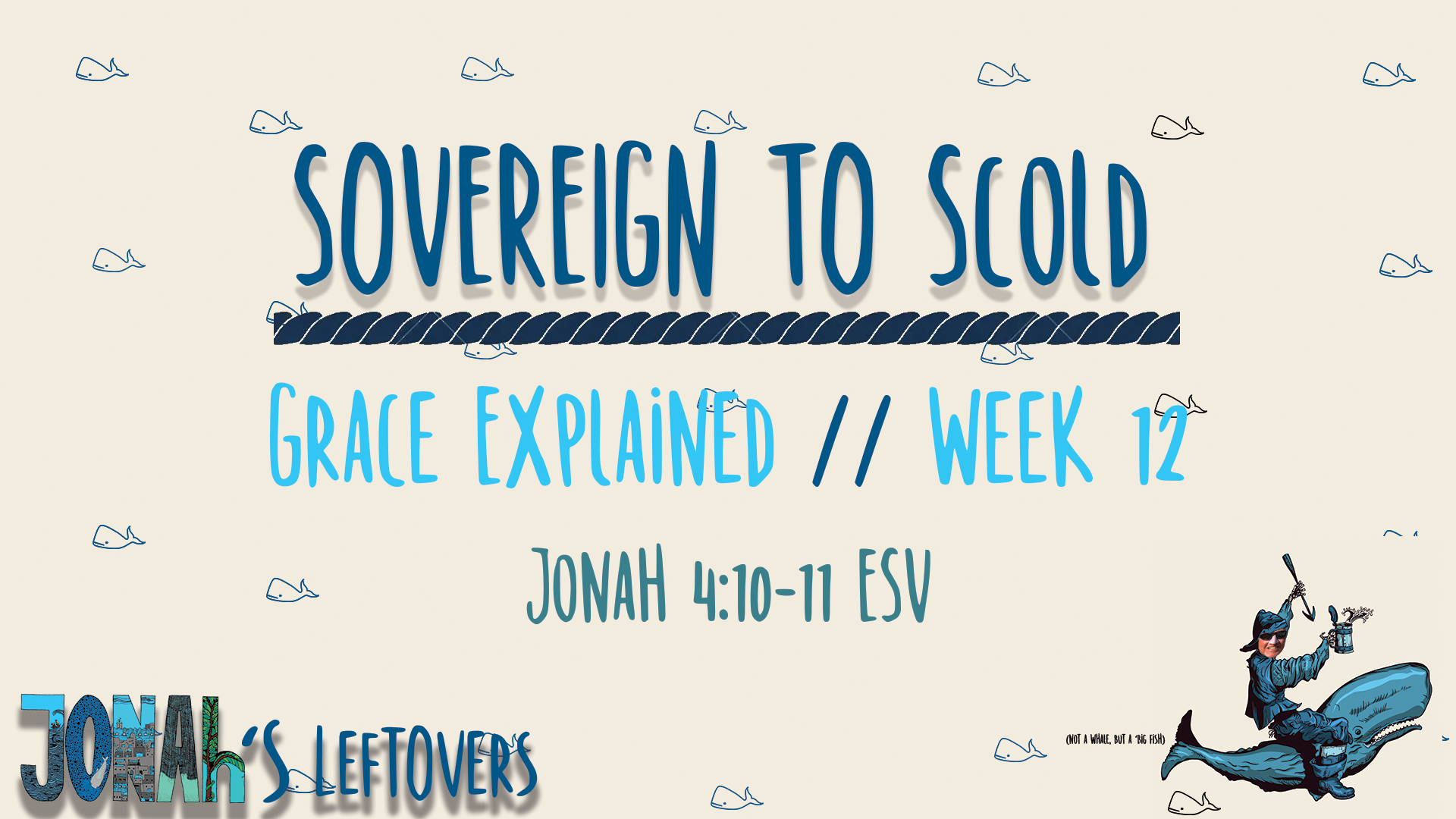
Jonah’s Leftovers // Jonah 4:10-11
December 18, 2022
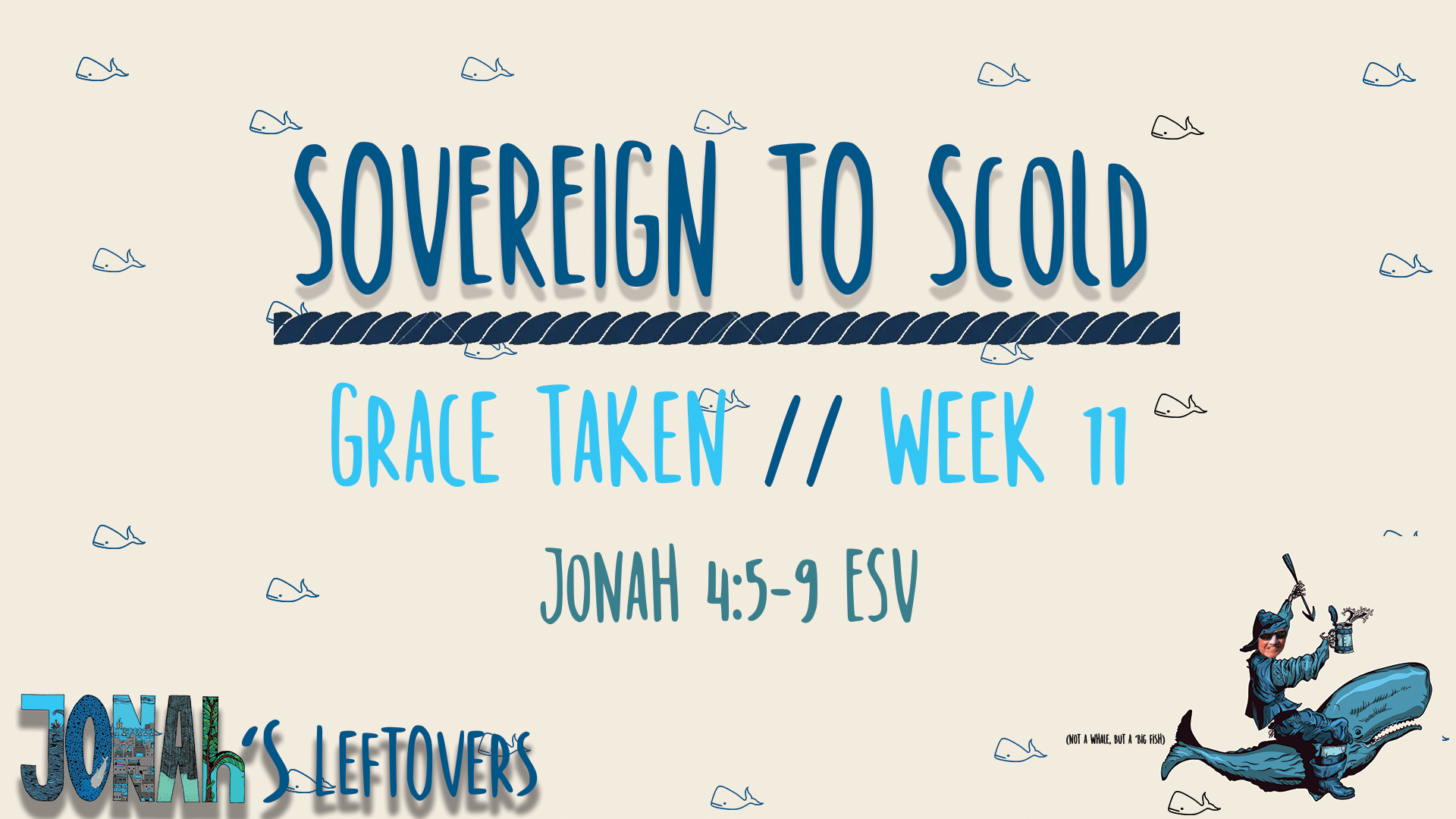
Jonah’s Leftovers // Jonah 4:5-9
December 11, 2022
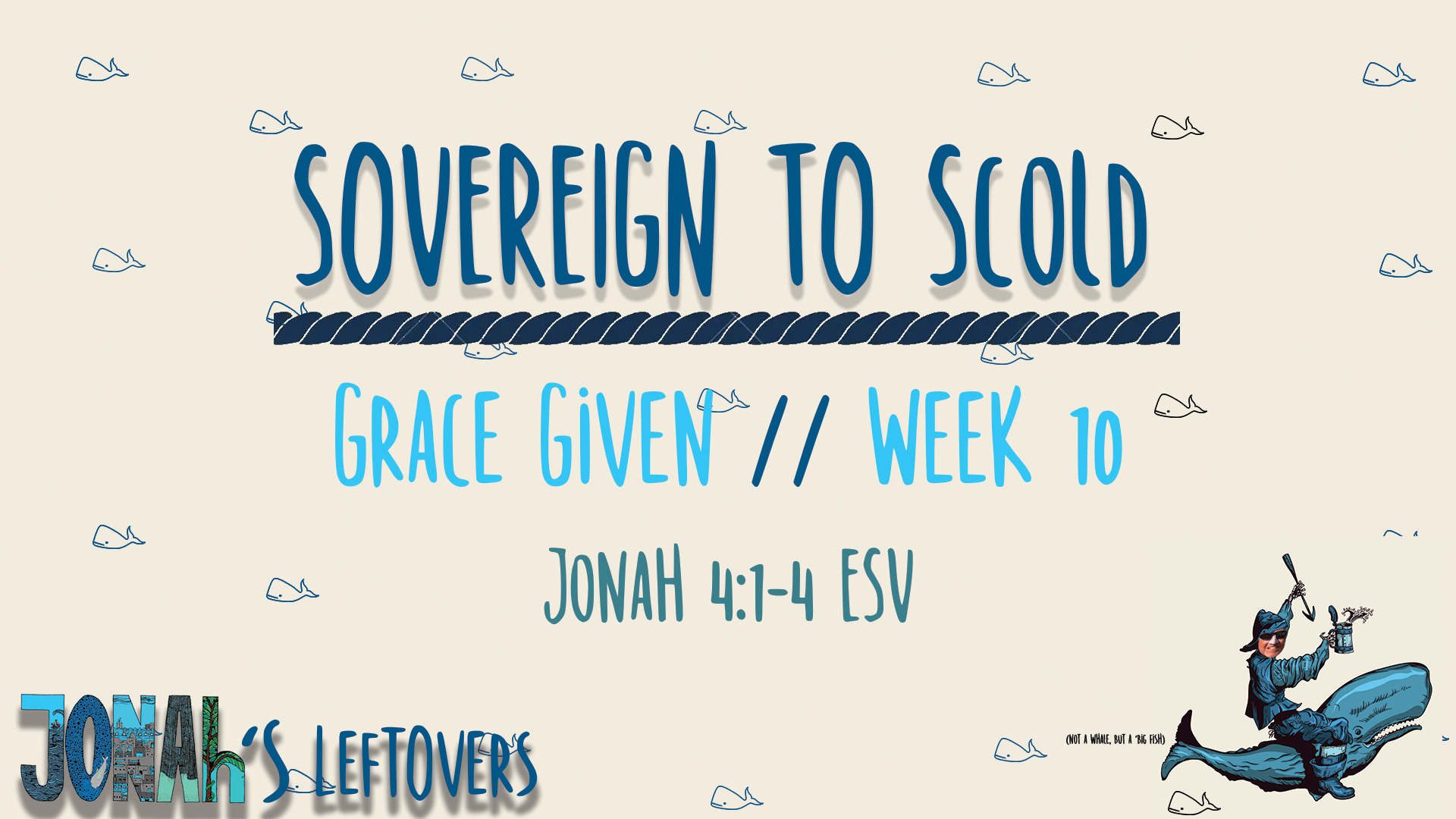
Jonah’s Leftovers // Jonah 4:1-4
December 5, 2022
